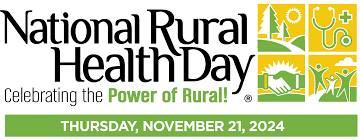Blog
- 2025
- April
- March
- February
- January
- 2024
- December
- November
- October
- September
- August
- July
- June
- May
- April
- March
- February
- January
- 2023
- December
- August
- July
- June
- April
- March
- February
- January
- 2022
- December
- October
- September
- August
- July
- June
- May
- April
- March
- February
- January
- 2021
- December
- November
- October
- August
- July
- June
- May
- April
- March
- February
- January
- 2020
- December
- November
- October
- August
- July
- June
- May
- April
- March
- January
- 2019
- December
- November
- October
- September
- August
- July
- June
- May
- April
- March
- February
- January
- 2018
- December
- November
- October
- September
- July
- June
- May
- April
- March
- February
- January
- 2017
- December
- November
- October
- September
- August
- July
- June
- May
- April
- March
- February
- January
- 2016
- December
- November
- October
- September
- August
- July
- June
- May
- April
- January
- 2015
- December
- August
- March
- February
- January
- 2014
- December
- October
- August
- July
- June
- May
- April
- March
- February
- January
- 2013
- December
- May
- 2012
- December
- June
- 4th of July (1)
- Addiction (43)
- Alcohol (17)
- Alcohol Awareness Month (1)
- Alcoholic (9)
- Anorexia (1)
- Anxiety (35)
- anxiety (4)
- assessment (1)
- Back to school (3)
- Beech acres (2)
- Bengals (1)
- Board members (1)
- Brain (2)
- budget (1)
- Bulimia (1)
- Bullying (2)
- Christmas stress (3)
- Cit (1)
- civil unrest (1)
- community (1)
- community talk (1)
- connectedness (1)
- connection (2)
- Coping (40)
- coping (9)
- coronavirus (6)
- Coronavirus (1)
- Counseling (44)
- COVID-19 (7)
- Crisis (1)
- Crisis intervention training (2)
- Dallas police (1)
- Data (3)
- dating violence (1)
- Depression (23)
- depression (3)
- disasters (1)
- downtime (1)
- Drinking (13)
- Drugs (7)
- Eating Disorder Awareness (1)
- Eating disorders (2)
- Eating right (2)
- Elections (1)
- Elementary (1)
- Emotional wellbeing (47)
- Enews (6)
- Events (2)
- Exercise (9)
- family (4)
- FDA (1)
- Find help find hope (1)
- first responders (1)
- football (1)
- friends (3)
- Gambling (1)
- goals (2)
- grief (1)
- halfway through year (1)
- happiness (1)
- Heroin (12)
- holidays (10)
- Housing (3)
- Hurricane harvey (1)
- intervention (1)
- Kids (8)
- kids (2)
- Louisiana (1)
- manage stress (1)
- men (2)
- Mental health (46)
- mental health (39)
- Mental health month (7)
- Mental illness (37)
- meth (1)
- Mindfulness (11)
- Minnesota (1)
- minority mental health month (1)
- Mybrave (1)
- NAMI (1)
- Narcan (1)
- National Night Out (1)
- nature (1)
- New Year resolutions (2)
- Newsletters (2)
- Nutrition (2)
- Oacbha (1)
- open house (1)
- Opiates (17)
- overdose (4)
- Overdose Awareness Week (1)
- Parenting (5)
- parents (1)
- parents and kids (1)
- Partners (32)
- Peer support (4)
- Police (2)
- Practical life coaching (16)
- Prevention (3)
- Problem Gambling (1)
- Ptsd (2)
- racism (1)
- Recovery (48)
- relationships (7)
- resources (3)
- rural mental health (1)
- Rx drugs (13)
- Safety (1)
- school (3)
- screening (3)
- seasonal affective disorder (1)
- seasons (1)
- self-care (7)
- self-love (1)
- seniors (1)
- slef-harm (1)
- Sobriety (5)
- stigma (1)
- Stress (19)
- stress (1)
- Stress Awareness Month (2)
- Substance abuse (3)
- substance abuse (3)
- Substance Use Disorder (4)
- Suicide awareness (13)
- Suicide prevention (20)
- summer (1)
- Super Bowl (1)
- support (1)
- teens (4)
- The champion (1)
- therapist (1)
- tips (1)
- Training (12)
- Trauma (18)
- Treatment (15)
- treatment (4)
- Valentine's Day (1)
- vaping (4)
- Veterans Day (2)
- virtual meetings (1)
- walking (1)
- well-being (3)
- work life balance (1)
National Rural Health Day: Empowering Rural Resilience

NOTE: Today we are sharing a blog from SAMHSA, the Substance Abuse & Mental Health Services Administration
: Jalima Caulker, Jennifer Salach, National Mental Health and Substance Use Policy Laboratory, Krishnan Radhakrishnan, Donelle Johnson and Humberto Carvalho, National Mental Health and Substance Use Policy Laboratory
For National Rural Health Day, SAMHSA celebrates the unique strengths of rural communities. SAMHSA empowers rural resilience by providing resources and tools that address behavioral health; supporting rural communities' ability to mitigate, adapt, and recover from stressors; promoting behavioral health equity; and building and retaining a diverse, robust, and resilient behavioral health workforce.
SAMHSA recognizes the urgent need for emergency medical services (EMS) in rural areas and the critical role EMS personnel serve across the country. While the need for a strong and diverse rural EMS workforce with capacity to address behavioral health is great, rural areas lack training to build and maintain such a workforce. In rural areas, an absence of advanced-level EMS providers—who are more likely to administer overdose reversal medication than are lesser-trained EMS providers—has been shown to contribute to increased rates of overdose deaths. Further, lack of EMS access in rural areas is linked to increased rates of suicide (PDF | 449 KB).
